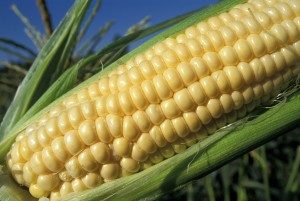
USDA’s Animal and Plant Health Inspection Service (APHIS) is responsible for overseeing experimental field trials of genetically engineered (GE) crops and reviewing petitions for the “deregulation” (approval) of new GE crops entering the commercial marketplace. APHIS has approved more than 80 of these petitions since the early 1990s (mostly GE traits in corn, canola, soybeans, and cotton). Twenty-one petitions are currently pending approval.
The Coordinated Framework for Regulation of Biotechnology has long been criticized as an inadequate regulatory system for ensuring the proper review and safe introduction of GE crops. No new law has ever been introduced to address the unique challenges GE organisms pose. Instead, the government relies on a patchwork of laws — some of which predate the technology — and the subjective interpretation of three agencies’ roles under these laws. One criticism is that no independent studies are required to analyze potential agronomic, environmental, human health, and economic implications. The government largely relies on the manufacturer’s own data when putting together an environmental assessment before approving (because they’ve never denied) a petition.
It’s disturbing, then, to read that just when a stronger regulatory framework is needed more than ever — as recent court decisions with alfalfa and sugar beets pointed out — USDA has announced a two-year “pilot project” to help make approvals of GE crops happen faster. Instead of providing the American public more transparency and independent research the agency is giving away even more power and governance to the industry it is supposed to be regulating. One proposal under this new regulatory approach allows chemical and biotechnology firms to conduct their own environmental assessments on the GE products they have invested millions in and require approval for in order to return profits to their shareholders. The conflict of interest is laughable. But we’re not laughing.
Rather than allow transnational firms to regulate themselves, USDA should require what’s in the best interest of American farmers and the communities they serve: comprehensive and independent studies on the long-term human health, environmental, and economic impacts of GE crops prior to their release. Furthermore, GE crops shouldn’t be deregulated. Ongoing oversight and public evaluation is necessary for a technology that is in its infancy and uncontainable.
